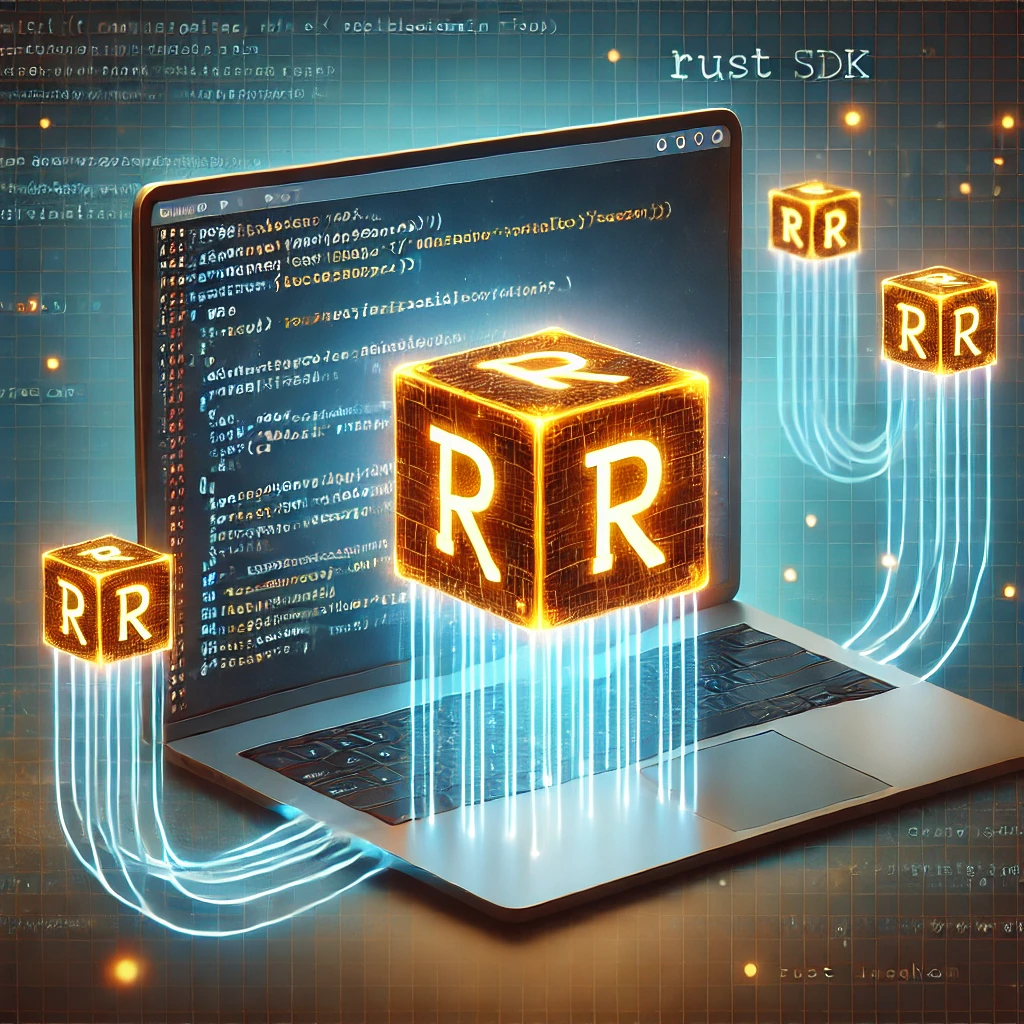Rust SDK Tutorial

Abstract
CardanoBI is the first fully Open-Source Business Intelligence API Layer for Cardano.
It exposes data grouped in 3 distinct Domains:
- Core Domain - Direct access to all on-chain data of Cardano (accounts, blocks, transactions, contracts...) enabling foundational blockchain functions and interactions.
- Business Intelligence Domain - Provides derived data from the Core, offering valuable data analysis and statistical insights to enhance strategic decision-making.
- Partner Domain - Provides insights into the business value outcome of companies/projects building utilities on Cardano. It combines on-chain and off-chain data and serves as the data layer to power the
Bloombergsof Cardano.
Our Rust SDK allows Rust developers to integrate the CardanoBI API in their own Rust application.
Rust developers can directly augment their application's code base, with a streamlined access to Cardano's data, without having to get outside of their technology stack.
This allows building on Cardano using Rust, in a more efficient and consistent manner, promoting shorter time to market and greater software quality.
Overview
In this tutorial, you will learn how to:
- Set up CardanoBI
- Create a request to get the latest block on-chain information
Prerequisites
Step 1 - Setting up CardanoBI
Go to cardanobi.io, register and create a Project.
This will give you access to our free No Frills user plan and provide you with API Key/Secret to gain access to CardanoBI API endpoints.
Step 2 - Identifying the relevant CardanoBI API endpoint for the task
To retrieve the latest block on-chain information, we will simply use the following endpoint:
You can view the full description of this endpoint by following this link:
DOCS Latest block: /api/core/blocks/latest
Now let's get some data out, shall we?
Step 3 - Clone the CardanoBI Rust SDK
Clone the SDK from GitHub:
git clone https://github.com/cardanobi/cardanobi-rust.git
Step 4 - Set up your Rust Project
Create and activate a new virtual environment:
cargo init --bin cbi-rust-tutorial
cd cbi-rust-tutorial
Open your project with your favourite IDE and configure dependencies by modifying the following file:
[dependencies]
cardanobi-rust = { path = "../../../cardanobi-rust" }
tokio = { version = "1.37.0", features = ["full"] }
serde_json = "1.0"
Make sure to adjust the cardanobi-rust path according to your environment.
Step 5 - Clean and Update Dependencies
Before you build your project, clean any old build artifacts and update dependencies:
cargo clean
cargo update
Step 6 - Create your Tutorial Script
Edit the main.rs file to include your usage of the SDK:
use cardanobi_rust::{CardanoBI};
use std::collections::HashMap;
use serde_json::to_string_pretty;
#[tokio::main]
async fn main() {
let cbi = CardanoBI::new(
Some("YOUR_API_KEY"),
Some("YOUR_API_SECRET"),
Some("mainnet"))
.await
.expect("Failed to initialize CardanoBI");
let blocks_latest = cbi.core.blocks.latest_(HashMap::new())
.await
.expect("Failed to call endpoint");
match to_string_pretty(&blocks_latest) {
Ok(pretty_json) => println!("blocks_latest: {}", pretty_json),
Err(e) => println!("Failed to serialize JSON: {:?}", e),
}
}
Step 7 - Run your Tutorial Script
Execute your script to see the latest block information:
cargo run
At the time of writing the latest block was:
{
"block_no": 10640199,
"epoch_no": 500,
"epoch_slot_no": 153153,
"hash": "vLbiZpua+nSOZeqryNmfVGPRF1mXowIf7QC7ZUARKLQ=",
"hash_hex": "bcb6e2669b9afa748e65eaabc8d99f5463d1175997a3021fed00bb65401128b4",
"id": 10677052,
"op_cert": "/Vjk63Pzi5mfnWnH12obiOYKkNVAHsfQt6TbeyQf9nE=",
"op_cert_counter": 42,
"op_cert_hex": "fd58e4eb73f38b999f9d69c7d76a1b88e60a90d5401ec7d0b7a4db7b241ff671",
"previous_id": 10677051,
"proto_major": 8,
"proto_minor": 0,
"size": 17884,
"slot_leader_id": 5118137,
"slot_no": 130789953,
"time": "2024-07-30T16:17:24",
"tx_count": 5,
"vrf_key": "vrf_vk10u2ppz4q9r739aul8jtyk5c2v7zmtqlungf9gj6jkxkwx2c8296swd4ef3"
}
Wrap Up
Congratulations on completing the tutorial!
You've successfully set up and used the CardanoBI Rust SDK to fetch data from the Cardano blockchain.
We encourage you to explore further and contribute to the SDK to help make it even better. Your contributions and feedback are welcome!
For more information and to contribute, visit our GitHub repository.
Feel free to explore other endpoints and capabilities of the CardanoBI SDK. Happy coding!